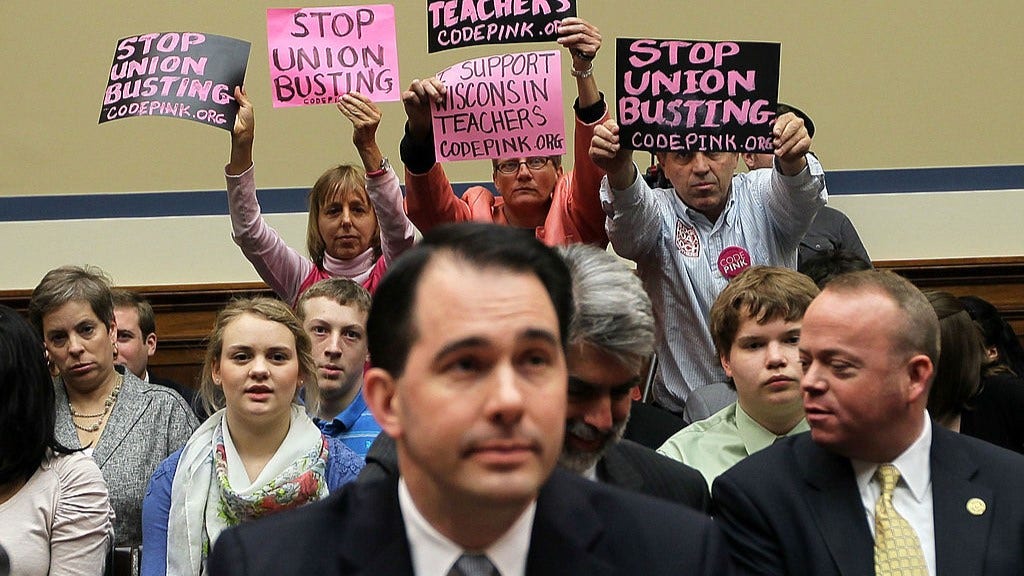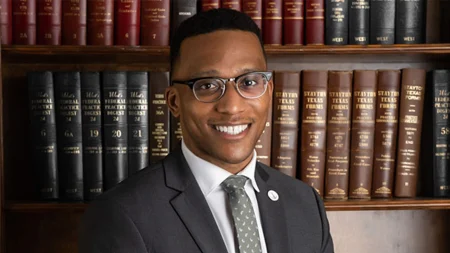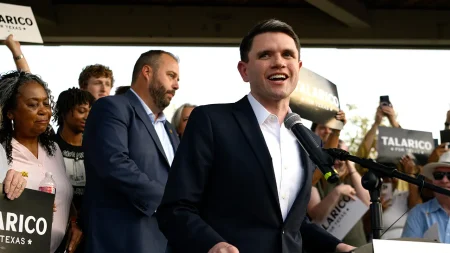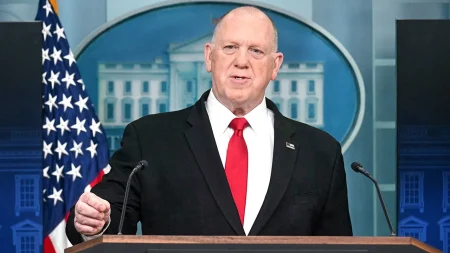In 2011, Wisconsin faced a significant budget deficit, prompting then-Governor Scott Walker to introduce Act 10, a controversial piece of legislation aimed at reforming public employee unions. The law sought to address the fiscal crisis by curtailing collective bargaining rights for public workers, thereby limiting their benefits and reducing state expenditures. Act 10 sparked widespread protests and political upheaval, with Democratic legislators even fleeing the state to prevent a quorum and vote on the bill. Despite the fervent opposition, the law ultimately passed, becoming a defining moment of Walker’s governorship and a catalyst for his subsequent political career.
The core of Act 10 involved restricting collective bargaining for most public workers, while notably exempting certain “public safety” employees like police and firefighters. This selective application of the law’s restrictions became a point of contention and legal challenge. Recently, Dane County Judge Jacob Frost ruled that these exemptions rendered Act 10 unconstitutional, arguing that the disparate treatment of public workers violated their rights. This ruling effectively struck down significant portions of the law, re-igniting the debate over public sector unions and their role in state finances. The decision has far-reaching implications, potentially altering the landscape of labor relations in Wisconsin and serving as a test case for similar legislation in other states.
Scott Walker, now leading the Young America’s Foundation (YAF), strongly condemned Judge Frost’s decision, characterizing it as a politically motivated move to empower union bosses at the expense of taxpayers. He argued that collective bargaining is not a fundamental right but rather a costly entitlement, reiterating his belief that Act 10 was necessary to address Wisconsin’s fiscal challenges. Walker defended the law’s selective exemptions, dismissing the judge’s concerns about disparate treatment as a “bogus political argument.” He pointed to the law’s previous upholding in both state and federal courts, suggesting that the current ruling is an outlier driven by a growing “liberal activist majority” on the Wisconsin Supreme Court.
Walker emphasized that Act 10, originally named the “Budget Repair Act,” was a direct response to Wisconsin’s balanced-budget requirement. He contrasted his approach with that of a prior Democratic administration, which chose to address budget shortfalls by cutting funding to municipalities, leading to layoffs. Walker argued that his reforms, requiring public workers to contribute more to their benefits, were a preferable alternative to job losses or cuts to essential programs like Medicare. He portrayed Act 10 as a fiscally responsible measure designed to ensure the long-term solvency of public pensions while preserving jobs.
Wisconsin Senate President Chris Kapenga echoed Walker’s sentiments, accusing Judge Frost of partisan bias and calling for impeachment proceedings. Kapenga expressed deep skepticism about the impartiality of the judiciary, drawing parallels to other controversial political issues. He claimed that the ruling demonstrates a broader erosion of trust in the justice system, reflecting a growing divide between political factions. This rhetoric underscores the highly charged political atmosphere surrounding the issue of public sector unions and the intense scrutiny placed upon judicial decisions related to labor law.
Looking ahead, Walker anticipates an appeal of Judge Frost’s ruling, predicting that a Waukesha court will overturn the decision. However, he also acknowledges the possibility of a subsequent appeal to the Wisconsin Supreme Court, where he believes the “liberal activist majority” could ultimately uphold the lower court’s ruling. Walker stressed the significance of the upcoming Wisconsin Supreme Court race in 2025, framing it as a pivotal moment for the future of labor relations in the state. In his current role at YAF, he continues to advocate for conservative principles and cultivate the next generation of conservative leaders, hoping to replicate the success he achieved in Wisconsin on a national scale. He highlighted the increasing involvement of YAF alumni in national politics, including key positions in the Trump administration. Finally, Walker noted encouraging shifts in youth voting patterns, seeing potential for greater conservative engagement among younger demographics.















